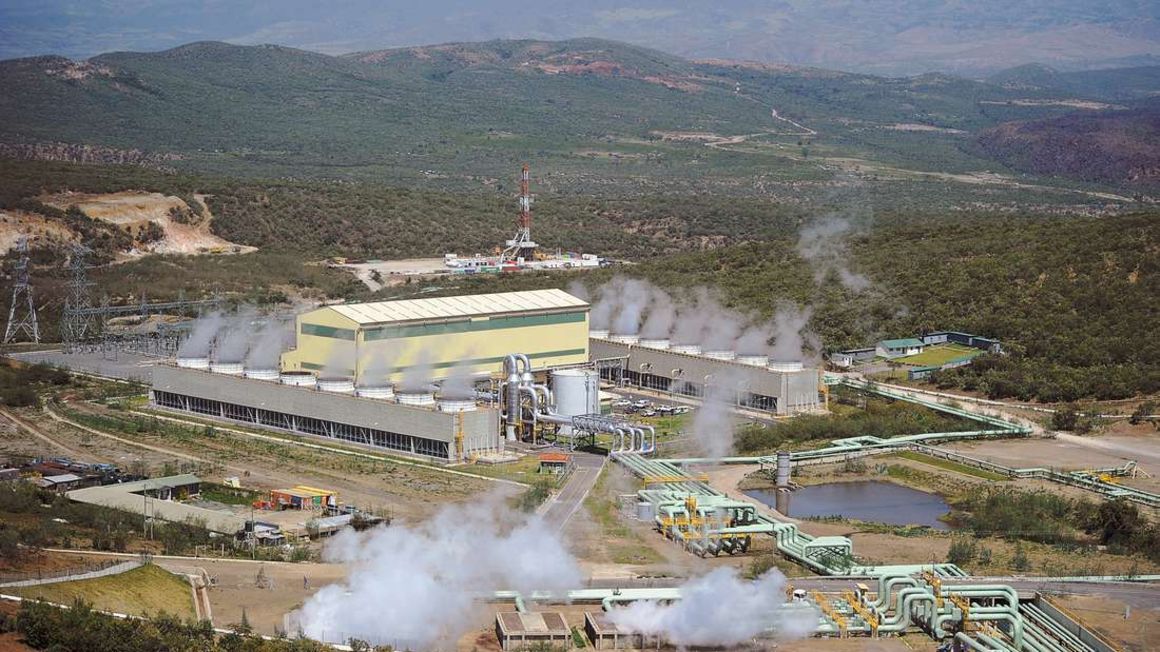Kenya Electricity Generating Company (KenGen) Ol-Karia IV power plant near Naivasha town. The geothermal power plant is the eighth-largest in the world ahead of giant economies such as Japan, Russia, China and Germany. PHOTO | AFP Africa has the potential to increase its renewable energy to not only set the continent on a low-carbon economic growth path, but also shrug off the hydropower and fossil fuel dependency for energy generation. This generation mix has been unsustainable largely due to persistent and frequent drought spells and fossil fuel price fluctuations on the international market.
The renewable energy sector in East Africa is now aspiring to increase the installed capacity of geothermal on the continent by over 2,500MW of electricity by 2030.
At the recent Eighth African Rift Geothermal Conference (ARGEO C8) hosted by Kenya, countries conveyed their urgent need to take transformative measures to accelerate geothermal development in Africa as a green alternative and cheaper option.
The conference was attended by over 500 experts, governments, civil society, academia and the private sector representatives from Africa and partners from the world.
However, participants called for capacity development for geothermal practitioners through the newly established Africa Geothermal Centre of Excellence in Naivasha, Kenya; as well as an in-country policy and regulatory framework development. Particularly, private sector players requested governments to adopt supportive policies and regulatory environment.
Direct use application of geothermal resources was recognised as a potential game changer to the economies and livelihood of rural communities in Africa through community and large scale projects. Development and Finance Institutions have committed to financially support direct use projects. Seizing the moment
The conference in Nairobi was convened by the African Rift Geothermal Development Facility (ARGeo) Project — a Global Environment Facility (GEF) funded project being implemented by United Nations Environment Programme (Unep). The GEF was established in the back drop of the 1992 Rio Earth Summit to help tackle the planet’s most pressing environmental problems.
ARGeo was established in 2010 to support eastern African countries to fast-track the development of the huge and untapped geothermal capacity for power generation and direct use application, in the region, consequently reducing greenhouse gas emissions.
The five-day virtual conference, held under the theme Energy and sustainability, seizing the moment to invest in geothermal resources for sustainable development, was hosted by Kenya in partnership with Unep, the African branch of the International Geothermal Association, Kenya Electricity Generating Company (KenGen), the Geothermal Development Company (GDC) as […]
